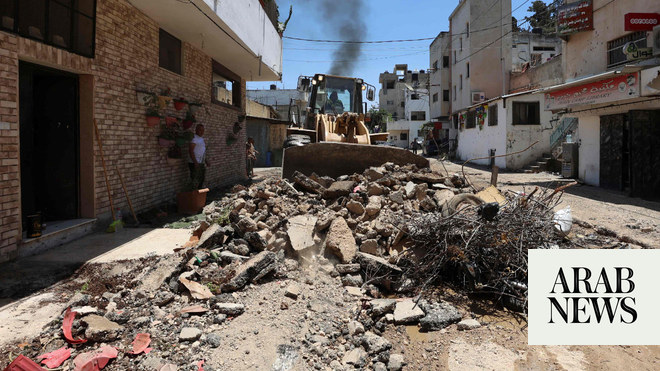
KABUL: Roadside stalls in Kabul are overflowing with colorful dry and fresh fruit, including imported varieties from as far away as Brazil and Australia, and shops selling sweets are bustling with customers.
Both rich and poor in the capital are rushing to buy treats to serve guests during the coming Eid — a celebration that is also an opportunity by Afghanistan’s wealthy to put on an extravagant show.
Families try to outspend each other to ensure they have the widest variety of food and fruits on the table.
As a result, the average expense for even a poor family can reach several hundred dollars, while more prosperous households routinely spend thousands of dollars on the three days of Eid celebrations in addition to throwing lavish parties.
Those who are destitute borrow from relatives and friends to have something on the table. For this reason Eid is described by some as the death of poor families in Afghanistan because those who have no cash to follow the tradition borrow money they cannot afford to repay.
The amount spent or wasted on new clothes in an unknown number of Afghan households may reach hundreds of millions of dollars every Eid.
But behind the outward show of prosperity lies a different story — one that has sparked debate across Afghanistan, an impoverished nation racked by four decades of conflict and reliant on Western aid even for its annual budget.
Such lavish and unnecessary spending is forbidden in Islam, clerics argue. Some have begun preaching against Eid excesses, while the number of poor and jobless people is increasing in the country and violence routinely claims scores of lives.
“Islam is totally against spending huge amounts of money for only a few days in the name of Eid,” Mawlavi Fateh Gul, a preacher at a Kabul mosque, told Arab News.
“Islam wants fair distribution of wealth and resources, and those who spend so much during Eid are responsible before society and Allah. This needs to be stopped,” he said.
Money spent on Eid could help build factories to create jobs, clinics and educational centers, another preacher said during a TV debate this week.
“People need to know that Eid means to forget vengeance and hostility. They should embrace each other and forget the enmity — that is the philosophy of Eid in Islam,” Ismail Seddiqi, a university lecturer, said.
“You can invite people to your house and prepare a normal dish, but it does not mean that you have to borrow or spend countless amounts of money.”
Almost without fail, prices rise in Afghanistan every Eid but hardly come down when the festival ends — another blow for impoverished families.
The price of cattle will skyrocket in Afghanistan as animals considered clean in Islam are slaughtered for the festivities.
“The drought has already reduced the number of herds this year and their purchase for Eid will mean further decline. That means prices will increase when Eid is over,” Rahmat Gul, a Kabul butcher, told Arab News.












